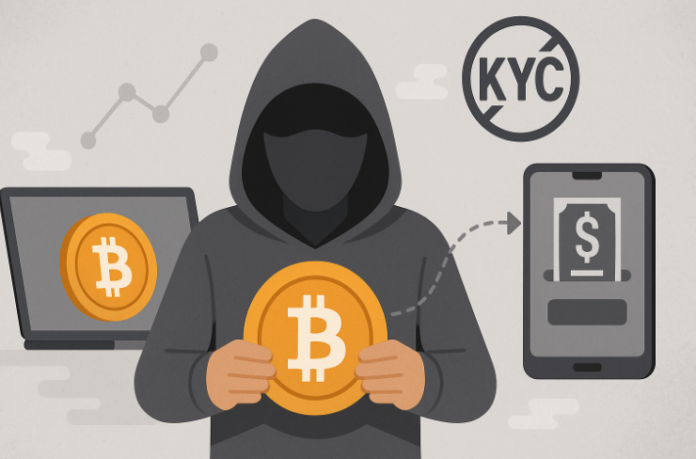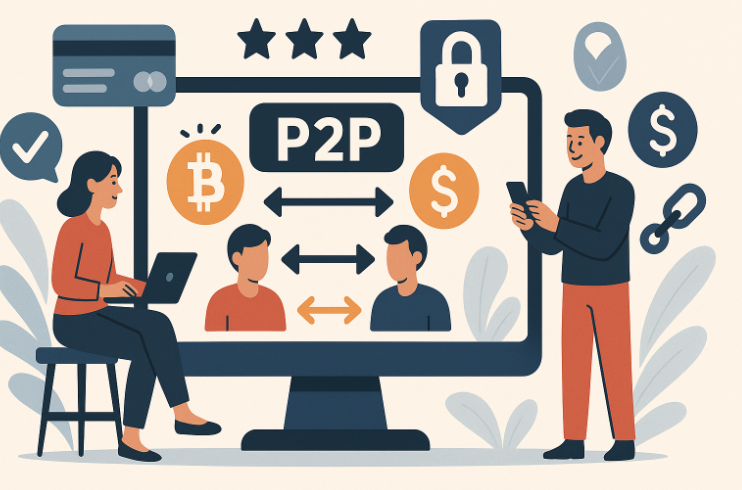
Privacy in the crypto world isn’t just a feature – for many users, it’s a fundamental principle. As governments worldwide tighten their grip on digital asset trading through increasingly strict regulations, finding ways to sell crypto without extensive identity checks has become something of an art form. Whether you’re concerned about data breaches or simply prefer to keep your financial activities private, you’re not alone. Cryptocurrency forums and communities frequently discuss topics like how to sell Kishu Inu Coin, a popular meme token, and other digital assets without going through intrusive verification processes. This guide walks you through practical, privacy-preserving methods for selling your crypto while maintaining your personal information security.
Understanding KYC requirements in cryptocurrency trading
Know Your Customer (KYC) procedures require users to submit personal identification documents before trading on most mainstream exchanges. These verification processes typically involve government-issued IDs, proof of address, and sometimes biometric data like facial recognition. Regulatory bodies worldwide have increasingly mandated these requirements to combat money laundering.
“Privacy in financial transactions represents a fundamental right that predates cryptocurrency itself—a principle that many early blockchain adopters consider essential to the technology’s purpose.”
The push for greater privacy stems from legitimate concerns. Data breaches affecting major exchanges have exposed personal information of millions of users. For many users, avoiding KYC isn’t about evading legitimate oversight but protecting sensitive personal and financial information in an era of frequent data compromises.
For newcomers to the cryptocurrency space, understanding these regulatory frameworks is crucial before developing any investment strategy. If you’re just getting started, consider reading guides for beginning investors: https://www.theyeshivaworld.com/news/general/2392238/starting-your-cryptocurrency-journey-first-time-bitcoin-investment-strategies.html
Non-custodial exchanges: The privacy-first option
Non-custodial exchange services offer one of the most accessible methods for selling cryptocurrency while maintaining privacy. These platforms facilitate direct wallet-to-wallet transactions without taking custody of user funds at any point in the process.
The privacy benefits of non-custodial exchanges stem from their operational model. Unlike traditional exchanges that function as intermediaries holding user assets, non-custodial services simply connect buyer and seller wallets directly. This eliminates the need for account creation in many cases, with transactions requiring only blockchain addresses rather than personal information.
Services in this category typically verify transactions through blockchain confirmations rather than identity documents. For smaller transactions, many maintain strict no-KYC policies, though regulatory requirements may trigger verification requests for unusually large amounts.
Decentralized exchanges (DEXs): Trading without identity verification
Decentralized exchanges represent the purest expression of cryptocurrency’s privacy-focused ethos. Operating entirely through smart contracts on blockchain networks, these platforms eliminate centralized control points that typically enforce KYC requirements.
Key benefits of DEXs include:
- Complete elimination of identity verification requirements
- Direct trading from non-custodial wallets
- Autonomous execution through smart contracts
- No central authority with access to user data
The technical implementation varies between platforms, but the core process remains consistent: connect a compatible wallet, select trading pairs, and confirm the transaction. The blockchain handles matching and settlement without intermediate parties.
While DEXs excel at privacy preservation, users should consider certain practical limitations. Network fees can significantly impact smaller transactions, particularly on congested networks. Additionally, most DEXs lack direct fiat currency off-ramps, limiting their utility for users seeking to convert directly to traditional currency.
Peer-to-peer (P2P) trading: Direct exchange without intermediaries

P2P trading platforms connect buyers and sellers directly, often incorporating reputation systems and escrow mechanisms to facilitate secure transactions between unknown parties. These marketplaces typically offer significantly more flexibility in payment methods than traditional exchanges.
When engaging in P2P cryptocurrency sales, several best practices enhance both security and privacy:
- Prioritize traders with established reputation scores
- Begin with smaller amounts to minimize risk
- Use secure, encrypted communication channels
- Select payment methods that align with privacy requirements
Payment options typically include traditional bank transfers, mobile payment apps, gift cards, and sometimes in-person cash transactions. Each carries different privacy implications, with cash transactions generally offering the strongest privacy protections despite logistical challenges.
Privacy coins: Enhanced anonymity for cryptocurrency transactions
Privacy-focused cryptocurrencies implement specialized cryptographic techniques that substantially enhance transaction anonymity compared to transparent blockchains like Bitcoin. These protocols obscure transaction details while maintaining verifiable consensus about the network’s state.
Privacy coins employ various technical approaches to achieve enhanced anonymity:
- Ring signature technology combines multiple transaction signatures, obscuring the actual sender
- Stealth addressing generates one-time addresses for each transaction, preventing address reuse
- Confidential transactions hide actual amounts being transferred
- Zero-knowledge proofs validate transactions without revealing underlying details
Converting between standard cryptocurrencies and privacy coins creates effective anonymity breaks in transaction chains. According to research from Statista, the cryptocurrency landscape includes thousands of different digital assets, with privacy coins representing an important segment for users seeking enhanced transaction privacy.
Alternative methods for private cryptocurrency sales
Beyond dedicated exchange platforms, cryptocurrency ATMs provide a physical option for converting digital assets to cash with varying levels of identity verification. Many ATMs implement tiered verification based on transaction amounts, with smaller transactions often requiring minimal identification. The convenience of immediate cash conversion makes ATMs valuable despite higher fees.
Gift card services represent another indirect method for converting cryptocurrency into usable value without traditional KYC processes. By purchasing digital gift cards using cryptocurrency, users can effectively transform their digital assets into practical purchasing power for everyday needs without revealing personal identity information.
Security and legal considerations when trading without KYC
Privacy-focused trading requires balancing anonymity with security and legal compliance. Users should implement robust security practices:
- Utilize hardware wallets for cryptocurrency storage when not actively trading
- Research platform reputation and security history before committing funds
- Implement strong authentication methods including two-factor verification
- Start with smaller transactions when using unfamiliar services
From a legal perspective, privacy in transactions doesn’t eliminate broader regulatory requirements. Most jurisdictions maintain tax reporting obligations regardless of how assets were acquired or sold. As noted in a Forbes article on cryptocurrency regulations, regulatory bodies worldwide have increasingly mandated KYC requirements to combat money laundering and illicit financing activities.
Conclusion
The cryptocurrency ecosystem continues to offer viable pathways for selling digital assets while maintaining transaction privacy. From non-custodial exchanges and decentralized trading platforms to peer-to-peer marketplaces and privacy-focused coins, users can select methods aligned with their specific privacy requirements and risk tolerance. By understanding the strengths and limitations of each privacy-preserving technique, cryptocurrency users can make informed decisions that balance privacy protection with security and convenience.





